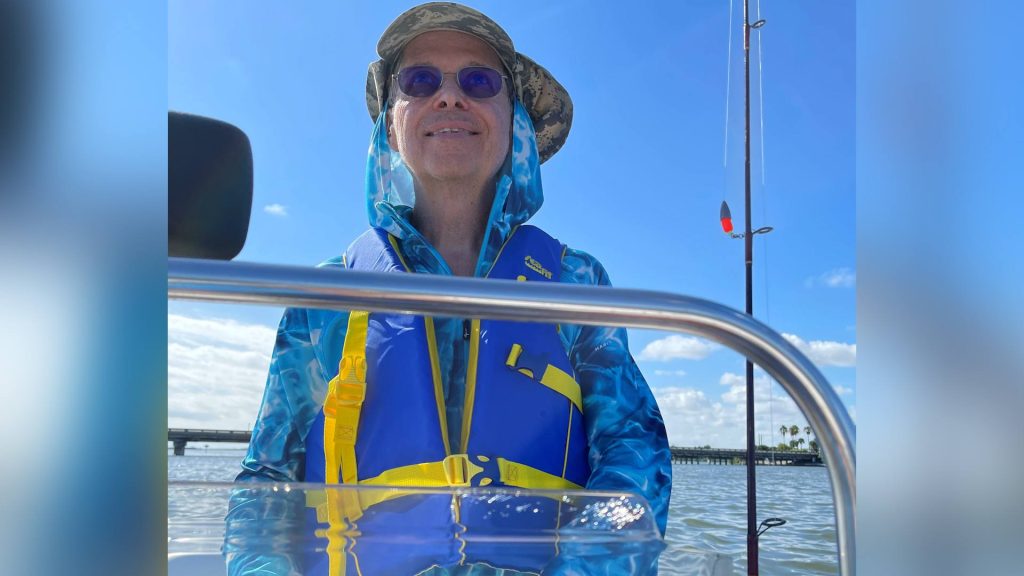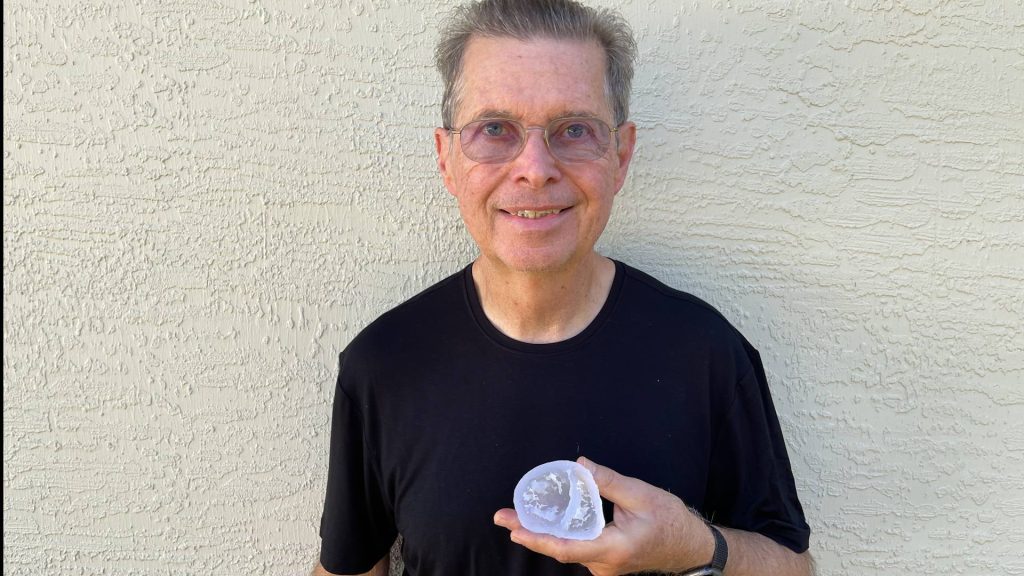
"I was 38 minutes with no brain activity," says Joe Bitter, recalling a 2015 incident.
He collapsed one night without warning, and his life thereafter would be much different. Joe, a 69-year-old retired law enforcement officer, avid boater and competitive line dancer, led an active lifestyle with his wife and two children.
Watch: How a 3D model, surgery helped a Florida father avoid a heart transplant.
Journalists: Broadcast-quality video natural sound pkg (2:15) is available in the downloads at the end of the post. Please courtesy: "Mayo Clinic News Network." Read the script.
"My biggest concern was just to stay alive," says Joe.
Joe's doctors near his Vero Beach, Fla. home repaired one of his heart's valves and implanted a defibrillator to monitor and restore regular heart rhythm. But by 2019, his heart was again in distress.
"My defibrillator hit me and brought me back right away. But when it did, the wire moved and caused the damage to my heart," says Joe.
Joe, who was uncertain if he would live to the next holiday celebration with his family, was told a transplant was his only option. So he reached out to Mayo Clinic.
"Mayo was the very top and No. 1 in the state. I figured if anybody could do anything to help me, they could," says Joe.
An early appointment with a Mayo Clinic sonographer led to another concerning discovery.
"She identified another minute leak in my heart that wasn't supposed to be there. Had she missed that, I wouldn't be talking about this today," says Joe.
He had a hole between two chambers of his heart and a second hole that led outside his heart.
"Blood was pooled outside of the heart, which is a very dangerous situation. He also had a couple of valves that were very leaky," says Dr. Parag Patel, a Transplantation Medicine specialist at Mayo Clinic and a member of Joe's care team.
After reviewing the complex issues at hand, the team printed a 3D model of Joe's heart to prepare the strategy forward.

"Doctors could see my heart in their hands before they even opened me up. And it was amazing that they would do this for me," says Joe.
Surgery in August 2020 focused on fixing Joe's heart, helping him avoid a transplant.
"My recovery was unbelievable. I went from hardly being able to move the one day to the next day to every day looking like I was making a week's improvement every 24 hours," says Joe.
Weeks after leaving the hospital, Joe and his wife, Susan Bitter, celebrated their 45th wedding anniversary. It was a joyful day the couple didn't think they would see.
"Joy because that's what it is. That's what it's all about. That one little thing in life, I mean, to be able to go from where you think you might not make it through the day, and then to be able to," says Susan.
As his health improved, Joe returned to the water ― fishing and even buying a new boat. His progress has also affected Dr. Patel.
"The best thing is seeing Mr. Bitter in clinic every couple of months and we've gotten to the point where we're not always talking about the medical issues. We've gotten to the point where we're talking about, 'How's life?'" says Dr. Patel.
A life Joe has reclaimed.
"I've already got this extra time, and I would try everything I possibly could to keep my life so I could still be here to take care of my family," says Joe.

For the safety of its patients, staff and visitors, Mayo Clinic has strict masking policies in place. Anyone shown without a mask was recorded prior to COVID-19 or recorded in an area not designated for patient care, where social distancing and other safety protocols were followed. Information in this post was accurate at the time of its posting.







